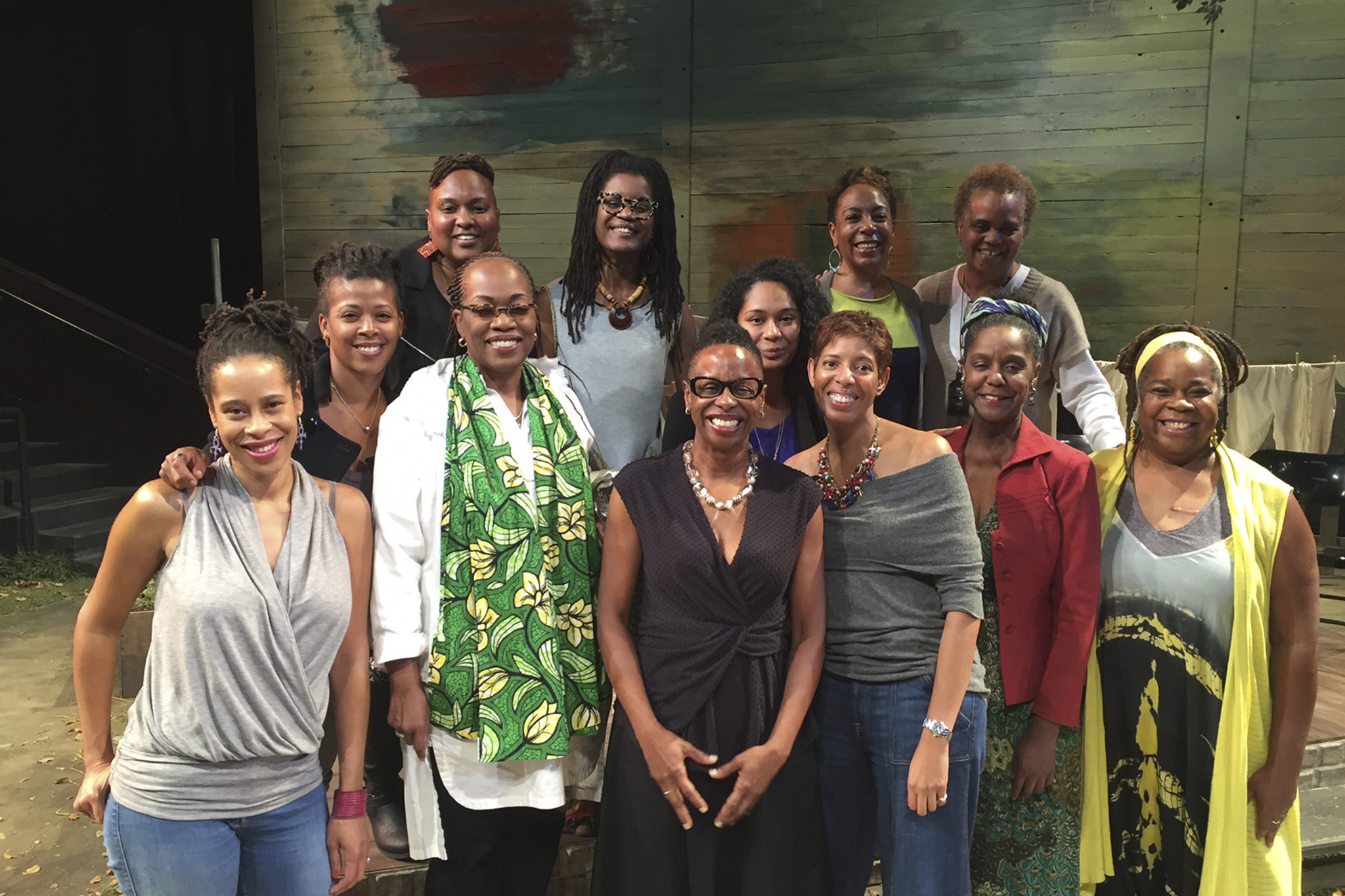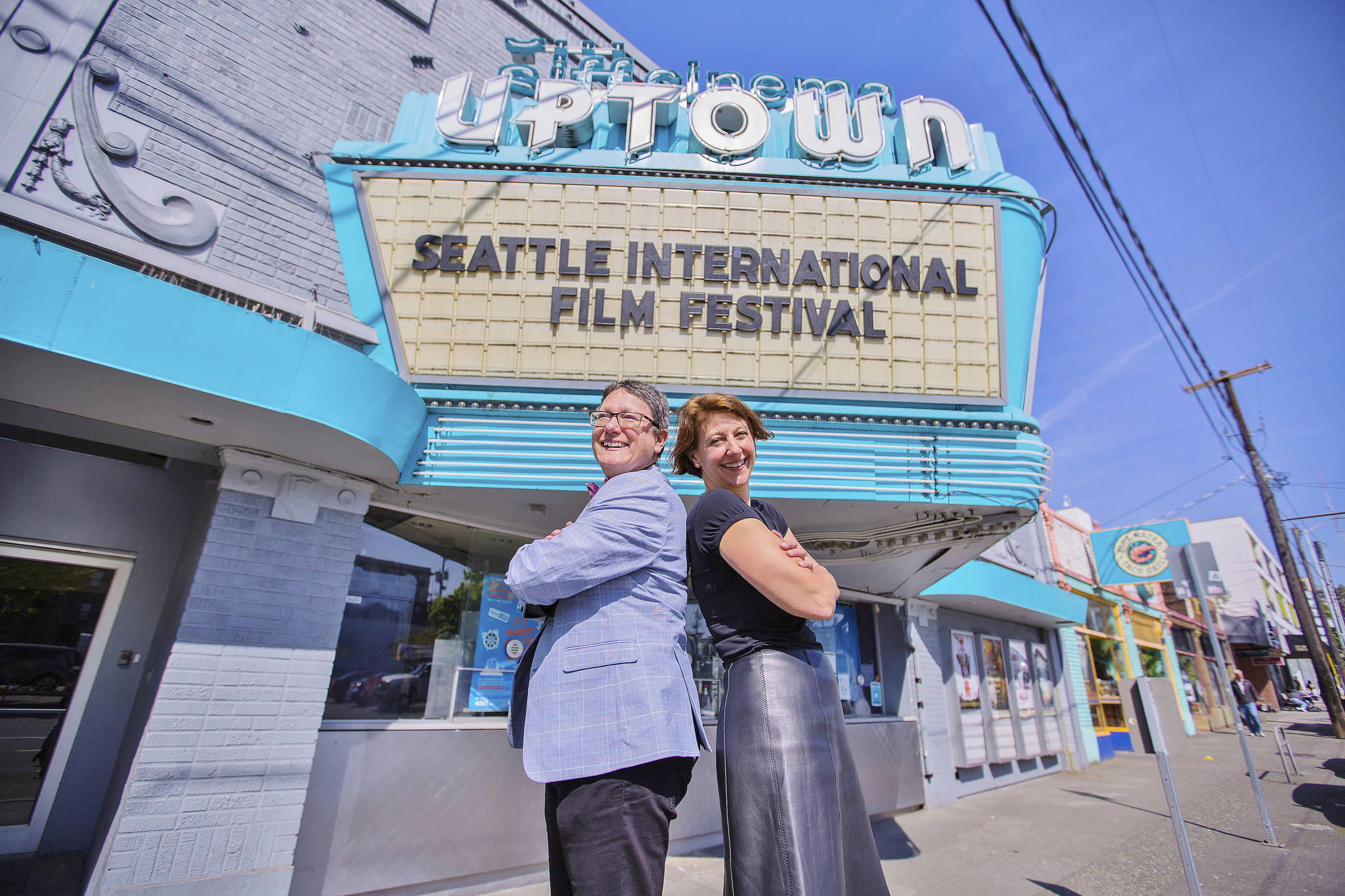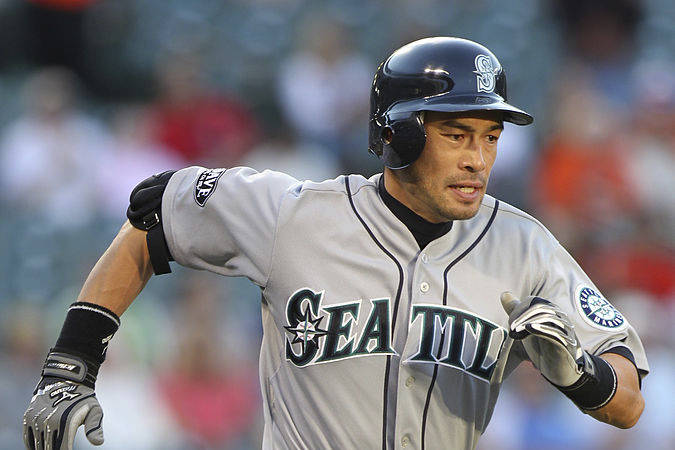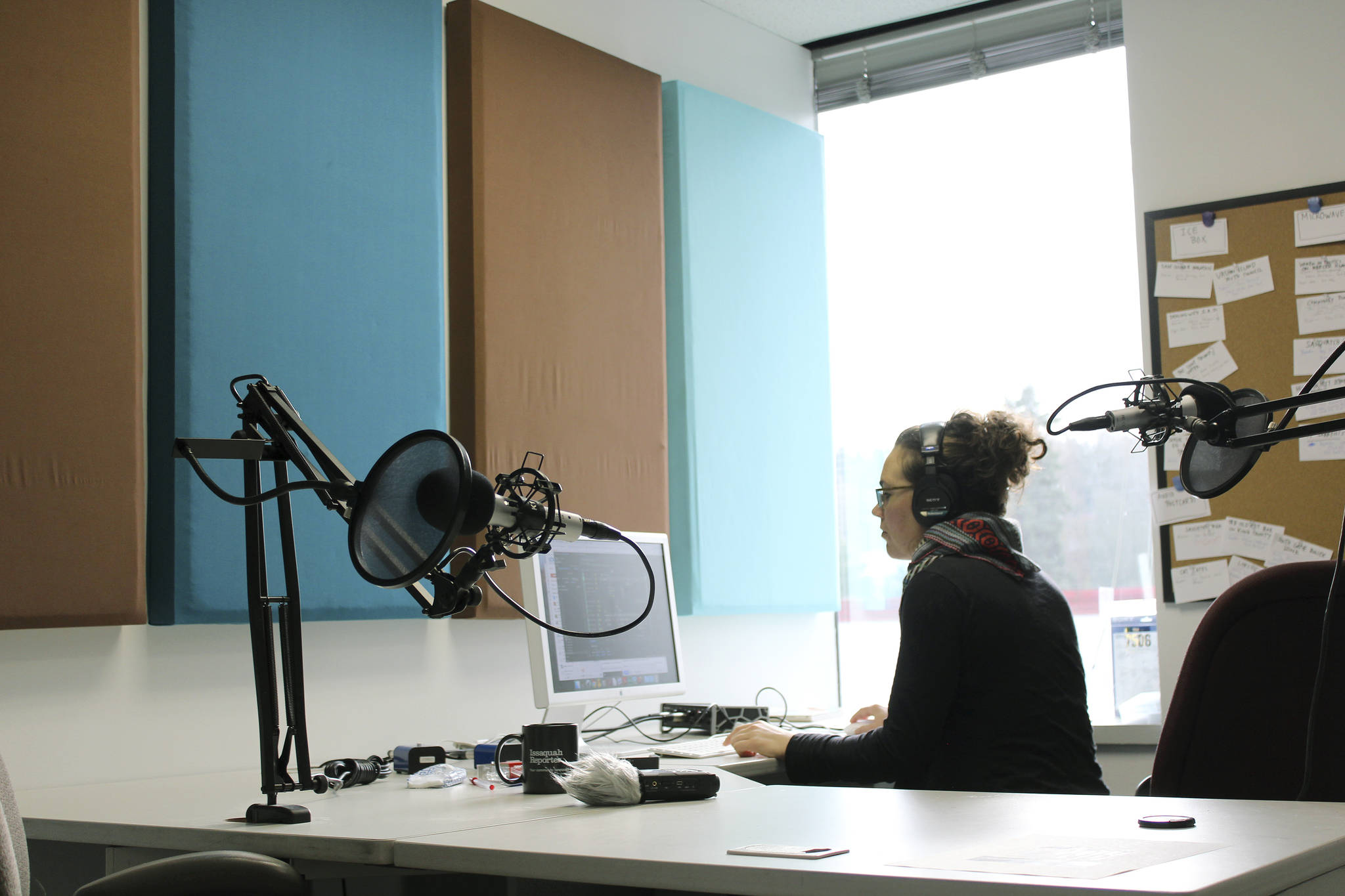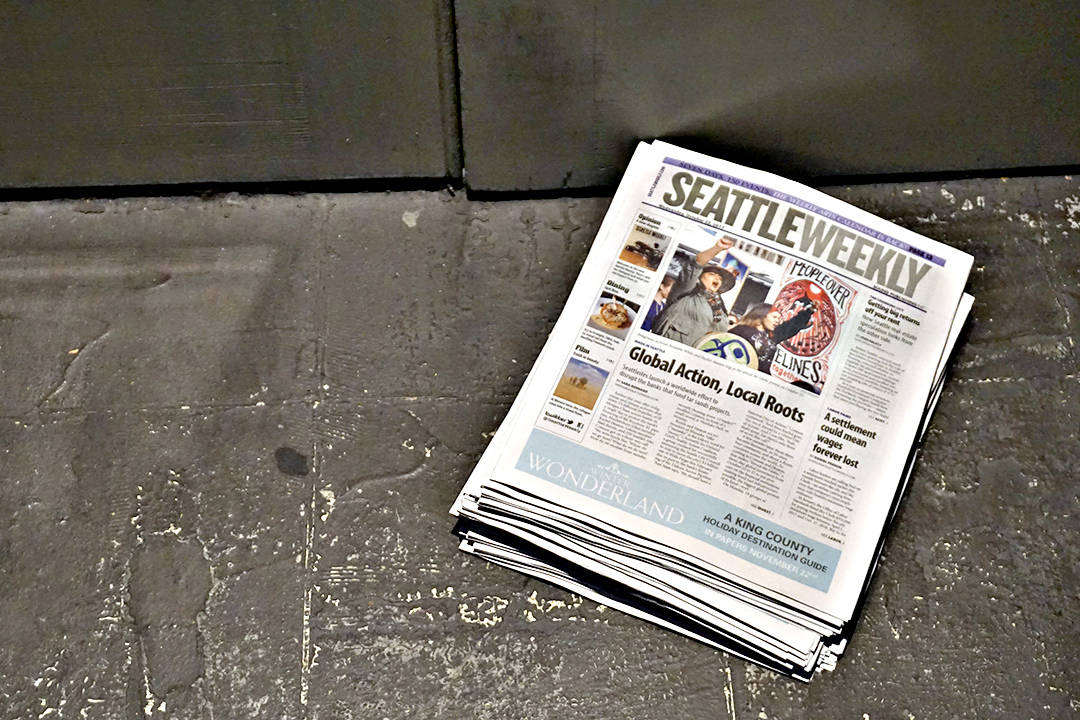The seed for the conversation that took place at Jones Playhouse on the University of Washington campus on Saturday was planted 18 months ago. It was then that Intiman Theatre artistic director Andrew Russell approached Valerie Curtis-Newton about directing a production of The Wedding Band, a play by an underappreciated mid-century black playwright named Alice Childress—a woman Curtis-Newton calls “the most radical truth-teller in American theater.” That one production quickly grew into an entire festival, produced in partnership with Curtis-Newton’s Hansberry Project and devoted to the work of black women. Starting in June with a searing production of Lydia Diamond’s Stick Fly, the Intiman Festival would go on to feature works by 20 black American women, culminating with the current production of Wedding Band at the Jones.
To mark the end of this fruitful collaboration, the Hansberry Project invited 11 black woman playwrights—local and national notables and newbies—to take part in the Black Woman Wisdom Summit. They gathered on the rustic set of Wedding Band, sitting on the small platform where the story’s hero Julia Augustine finds her fate, and talked shop, following prompts from Curtis-Newton. Here are a few of the things they said.
“What does it mean to be a black woman writer? Does it matter?”
Lydia Diamond: It’s a privilege. I feel prideful that I have walked through a world that is hostile to writers, even when they are white men, and hostile to women, whatever color they might be. I feel like, yeah, I’m a black woman writer, and I’m proud. When a white interviewer decides that they can only talk about my work within the framework [of being a black woman], then I take offense.
Chisa Hutchinson: I find that I will never run out of material. [Laughter] But still, the majority screws minorities over. To be a black woman, that’s a wellspring right there. But then there is the question of who is looking at you, who is viewing your work, who is judging your work, who is producing your work. Who is criticizing your work.
Dominique Morisseau: I am not going to be negated by it, because I own it, but … when you feel negated, you feel a need to completely reclaim something and say, this is not the thing the media says, this is not a negative, this is something we are really proud of.
Diamond: When I talk about [the interview], what I mean is what is talked about in the interview. If you are a black woman of color, they want you to talk about how America has tried to keep you down, but somehow you persevered. If you are a white artist, you talk about the making of the art.
Amontaine Aurore: For me, I started out as an actress. Having gone to Hollywood in the ’80s and ’90s and realizing that I was going to be put in a box as an actress and that I wasn’t going to be offered the kinds of roles that were really going to expand me or going to show the breadth of black experience—of my experience as a human being—that’s what propelled me to write, to help to balance that out. So I can’t separate those things; the reason I write is because I am a black artist who wanted to be able to show the world that I knew.
Shontina Vernon: When it is assumed that because you are black and female that what you are writing about must somehow be race or an extension of race, [that’s frustrating]. Some of my earlier work was on the side of sexuality, and people would come and see it and say, “Oh, it’s so universal,” and it’s like, only you decided to be reductive and look at it as black and female. It is definitely an expansive experience. I sit at the intersection of a lot of things, which should mean to you that I see more, but you want to make the assumption, or decide that I only see a sliver. That’s essentially how you see me. You see me in that sliver, and it really is that I can see so much more. It’s really, in the same sense, about “Whose universe are you talking about?”
“I hear this thing, that there is this play, but could [the characters] be white? Have you encountered that?”
Alma Davenport: Here is the thing about “Could they be white,” right? But they’re not. [Laughter]
Diamond: And it’s said like it’s a compliment. Like, congratulations, you’ve written a play that I can see myself in. Good for you.
Vernon: That’s that same thing with Black Lives Matter and All Lives Matter—what are you trying to deny by washing out certain specifics? What about me, in your eye, cannot be included in universality? Because that, in fact, is what you are saying.
Morisseau: Whose universe? Saying that work should be “universal” is code for work that should be appreciated and understood by a white audience. So universal becomes code for white, and then we’ve got a white universe, and I’m like, hold on. The thing about universality is that we are all a part of the universe, so every work is universal. And if you aren’t writing from a specific place, where are you writing from?
Kathya Alexander: I just had an experience this summer where somebody invited me to do a play, and I get to the theater and it’s all white actors and this is a play set in a black church. [Laughter] And I was like, “It’s not gonna work.” But that was the advice; you should really consider color-blind casting. But in a black church?
Hutchinson: Part of this for me is trying to create opportunities for my black and brown actors… . The analogy that I can think of is if your father owns the ice-cream shop, right? And me, I’ve been saving, I’ve been mowin’ lawns, I’ve been delivering newspapers, to scrape together my pennies to buy an ice-cream cone. Then you come along and you say, “I want that.” You know, like, “No. I worked hard for this ice-cream cone. You have the whole shop. You’ve got all 31 flavors.” To take that away, that is beyond entitlement.
“I asked you about your identity as a black woman playwright. What about your womanness? Does it encounter similar obstacles?”
Vernon: Well, you know, on the other side of white supremacy is just patriarchal bullshit. The fact that I am a woman means that I encounter it, and often on both sides in terms of race, and then I added queer to the mix just for more shit. I feel like in my work, though, I like it. I like my woman eyes… . For me it feels like another thing that is a privilege.
Diamond: Right now [in theater] it’s all about gender parity, and that means white. But just getting people to acknowledge that there is a dynamic in feminism and in the way that the feminist movement was defined that, in and of itself, has excluded me. So when I’m asked the question, I say, “No,” because I haven’t had the luxury of being a woman artist. I’m just trying to make my stuff. And, yes, usually the thing I am pushing against the hardest is about my race.
Quotes edited for length and clarity. The full conversation will air on Seattle Channel later this week.
CORRECTION An earlier version of this story stated that the Black Woman Wisdom Summit was produced by Intiman Theatre. It was actually produced by the Hansberry Project.
